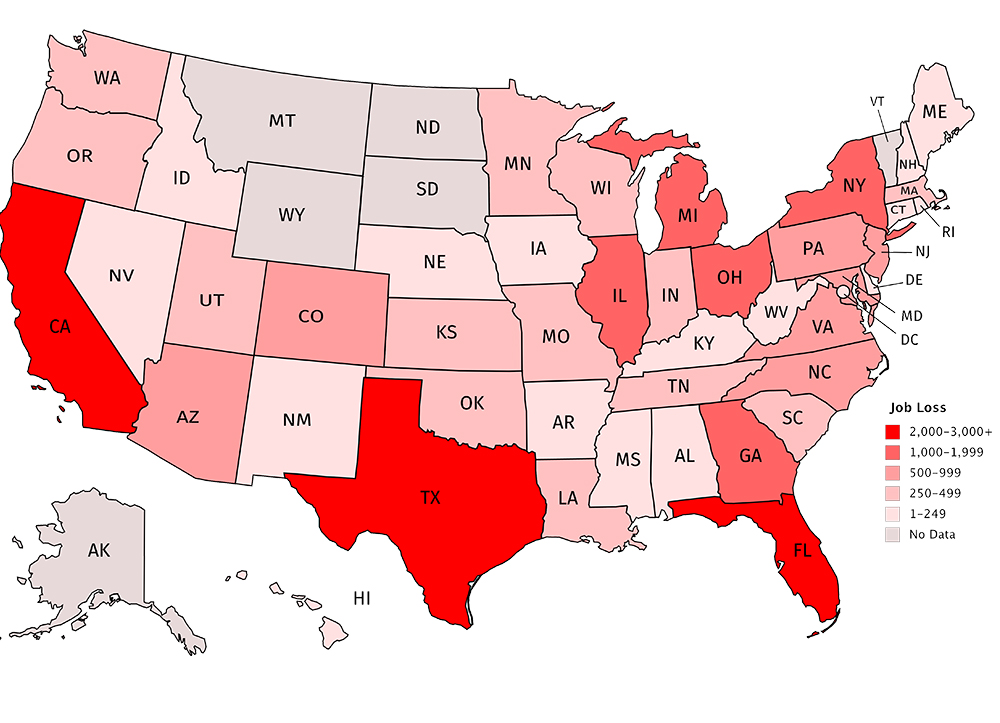
A map created by CWA showing estimated retail job losses the union argues could happen as a result of a T-Mobile/Sprint merger. (Image Source: CWA)
The Communications Workers of America (CWA) union has warned the FCC that T-Mobile’s proposed acquisition of Sprint could result in 30,000 employees losing their jobs.
This is in contrast to comments by T-Mobile and Sprint executives who have touted not only competitive benefits in the marketplace from the consolidation of the nation’s third and fourth largest wireless carriers, but have also promised the deal would actually create new jobs.
Specifically, CWA’s analysis finds the merger would kill 25,500 jobs from the elimination of retail stores and another 4,500 job cuts related to duplicate headquarter positions.
In reply comments filed Oct. 31 with the FCC, CWA said that T-Mobile and Sprint’s claim that the union’s job loss analysis did not account for expanded staffing at stores that would stay open and new stores in rural areas post-merger is “demonstrably false.”
“CWA’s analysis clearly (and repeatedly) addressed expanded staffing at surviving stores and in rural areas. Moreover, Applicants do not rebut CWA’s estimate of the number of jobs that would be eliminated as a result of the proposed transaction, nor do they provide alternative detailed calculations,” CWA said in its filing. “The omission is hardly accidental, as the Applicants have publicly suggested, even after CWA’s comments were filed, that store closures are likely if the merger takes place.”
Meanwhile, at a recent town hall meeting with employees, T-Mobile CEO John Legere and Softbank COO Marcelo Claure discussed reasons behind the combination and positive outcomes, and also addressed the job issue. Claure, now at Sprint parent company SoftBank was Sprint’s previous CEO.
“From a jobs perspective, right, both John and I testified in front of the US Congress…that we were committed to adding new jobs to the economy — all sort of jobs,” Claure said, according to a transcript spotted by RCR Wireless. “We’re going to have jobs in engineering, jobs are going to be deploying the network, retail jobs, telesales jobs, Care jobs, all sort of jobs that this company is going to create. So this is one of those rare instances when you have two CEOs from publicly-traded companies who, under oath, make a commitment to create new jobs.”
CWA also says that T-Mobile and Sprint have failed to prove public interest benefits from a combination of the two including providing 5G services in rural areas. A declaration submitted in connection with CWA’s reply comments concluded that the combined T-Mobile would “only marginally improve” rural service compared to a standalone T-Mobile.
“CWA’s FCC filings make it clear that while the merger’s harms to the public interest are predictable and well-documented, the supposed benefits of the merger remain highly speculative and unsubstantiated. The FCC should not approve this merger as presently constructed,” said CWA Research Policy Director Debbie Goldman in a statement.




